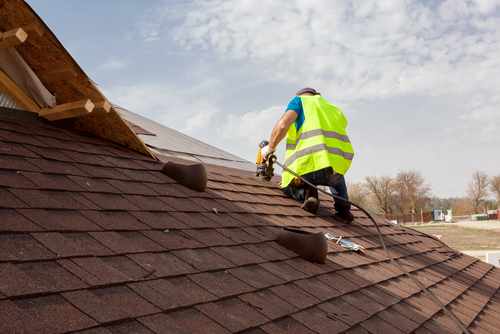When deciding on the appropriate material for your driveway, asphalt emerges as a popular and practical choice for many homeowners. This material offers a range of benefits, from cost-effectiveness to durability, making it a favored option in the construction and home improvement industries. Its smooth surface and quick installation process also provide convenience and long-lasting performance, enhancing both the functionality and appeal of any property.
Recyclability and Environmental Impact
One of the significant advantages of using asphalt for your driveway is its recyclability. According to the Carolina Asphalt Paving Association, asphalt is a fully recyclable material. This recycling capability means that old asphalt driveways can be repurposed, reducing the environmental impact often associated with construction waste.
When opting for an asphalt driveway, homeowners contribute to sustainable construction practices. Asphalt recycling helps conserve natural resources, as it reduces the need for new raw materials. Furthermore, the process of recycling asphalt requires less energy compared to producing new asphalt, thus decreasing greenhouse gas emissions.
Incorporating recycled asphalt into new constructions also results in lower transportation costs. Since recycled asphalt can be sourced locally, it minimizes the energy consumption and emissions related to transporting raw materials over long distances. This adds another layer of environmental benefit while also potentially reducing the overall cost of the driveway installation for homeowners.
Structural Integrity and Thickness
The structural integrity of asphalt is yet another compelling reason to consider it for your driveway. As reported by BobVila.com, a standard asphalt driveway typically consists of 2 to 6 inches of asphalt. The thickness of the asphalt layer can be adjusted depending on the specific needs of the home, such as the expected weight of vehicles or local climate conditions.
Thicker asphalt layers generally provide greater durability, which is especially important for areas with high traffic or fluctuating weather patterns. An adequately constructed asphalt driveway can withstand heavy loads and resist damage from freeze-thaw cycles, making it a reliable choice in various environments.
Moreover, the flexibility and strength of asphalt allow it to adapt to minor ground movements without cracking. This ability to endure slight shifts makes asphalt a solid long-term investment for homeowners seeking a practical and durable solution for their driveways.
Production and Economic Advantages
The economic benefits of asphalt extend beyond individual driveway installations. Each year, the National Asphalt Pavement Association states that the production of asphalt mixtures totals approximately 420 million tons. This high production volume underscores the material’s affordability and availability, as economies of scale help keep costs manageable for both production and installation.
As one of the most widely used materials in paving, asphalt benefits from advanced production technologies, which has steadily improved its quality and performance over time. Innovations in asphalt production not only enhance durability but also reduce environmental impact, offering homeowners a product that meets modern standards of performance and sustainability.
Additionally, the competitive pricing and efficiency of asphalt installation make it an attractive option from an economic standpoint. Homeowners looking to maximize their investment in property improvements will find that asphalt driveways deliver excellent value due to their cost-effectiveness and longevity.
In summary, choosing an asphalt driveway is a smart investment that offers a wide range of benefits for homeowners. One of its key advantages is its eco-friendly nature—most asphalt is fully recyclable, meaning old surfaces can be reused in new projects, reducing waste and supporting sustainable construction practices. Beyond its environmental contributions, asphalt is renowned for its structural strength and durability. It can withstand heavy loads, resist cracking under temperature changes, and provide a smooth, safe surface for vehicles and pedestrians alike.
Economically, asphalt is also highly appealing; its installation is generally more affordable than alternatives like concrete, and its maintenance and repair costs are comparatively low, making it a cost-effective long-term choice. Additionally, asphalt driveways can be customized in colour, texture, and layout, allowing homeowners to enhance their property’s aesthetic appeal while improving functionality.









